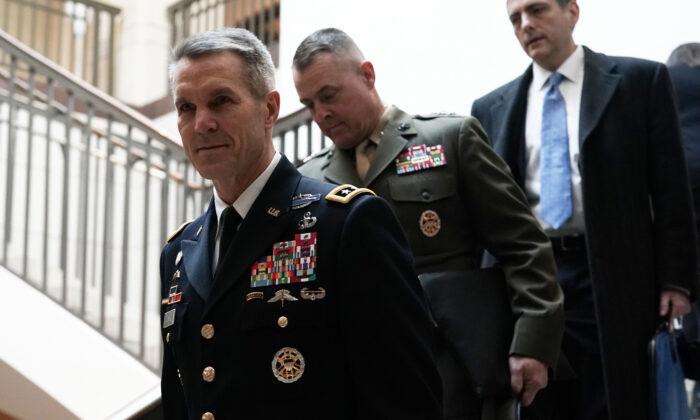The head of U.S. Special Operations Command (USSOCOM) said on Nov. 19 that the ISIS-K terrorist threat in Afghanistan “still exists” and he doesn’t believe the United States can rely upon the Taliban’s newly formed government as a partner against this threat.
Clarke made the remark during an appearance at the Halifax International Security Forum in Canada on Nov. 19, urging the United States to continue working with Afghans and foreign nationals on the ground.
“We’ve built amazing counterterrorism capabilities over the last 20 years. Some of those capabilities can still be used in Afghanistan today. We have to work with Afghans that remain in Afghanistan to see and sense, and we have to work with regional allies,” the U.S. commander said.
“There are still other embassies that remain in Afghanistan. There are still other intel threads,” he added. “But the most important thing for us in Afghanistan is to understand the intel picture of where ISIS-K exists there today.”
Clarke also noted that “over the horizon” operations, which are designed to eliminate potential threats from great distances, have become more difficult without troops on the ground.
During an Aug. 31 speech from the White House, President Joe Biden told the American public that the United States does not need a physical presence in Afghanistan to keep Americans safe from terrorists.
“It’s going to be harder. Anytime you have a physical presence on the ground it stimulates the enemy forces. You see and sense with partner forces,” he said in reference to the reduction of troops on the ground.
ISIS, an enemy of the Taliban, has claimed responsibility for a number of attacks, including the Aug. 26 Kabul Airport bomb attack that killed 13 U.S. service members and the Oct. 8 suicide bombing that killed 46 minority Shiite Muslims. Washington considers ISIS its greatest terrorist threat emanating from Afghanistan.
Clarke said he doesn’t see the Taliban as a potential partner in the fight against the ISIS affiliate.
“I don’t see it,” he told the forum. “I don’t think they should be considered today … as a counterterrorism partner.”





